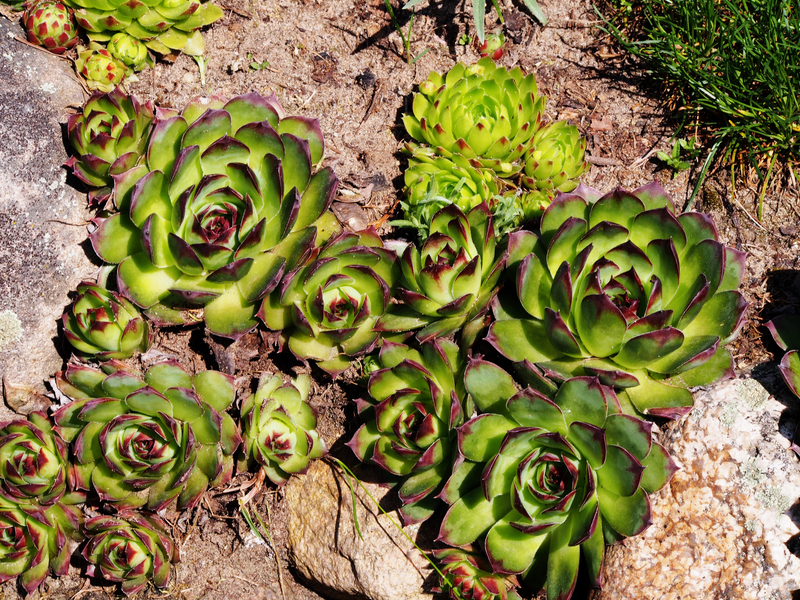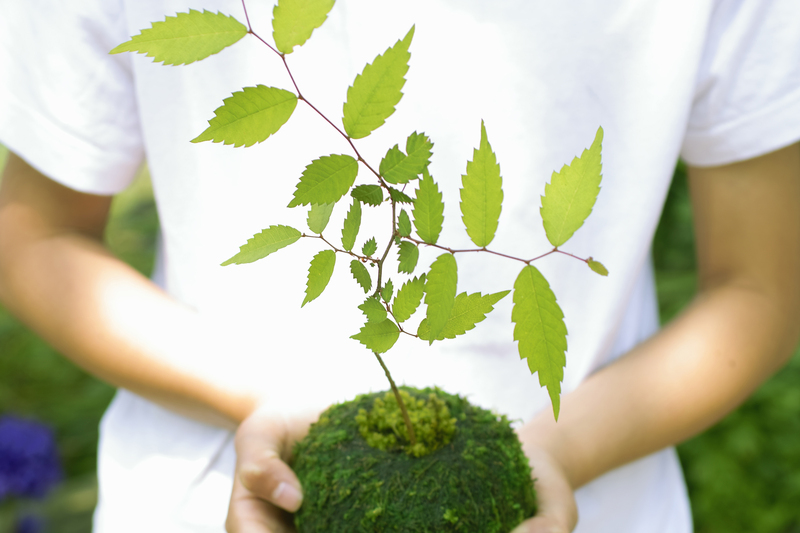Sprout Your Knowledge with 9 Gardening Essentials
Posted on 19/08/2025
Sprout Your Knowledge with 9 Gardening Essentials
Gardening is not just a hobby; it's a journey of growth, discovery, and tranquility. Whether you're a novice planting your first seeds or an experienced horticulturist refining your landscape, understanding the key components that foster a healthy garden is essential. In this comprehensive guide, we'll explore how to sprout your knowledge by diving deep into the nine must-have gardening essentials. Prepare to transform your outdoor space and nurture your understanding of plant care with practical tips and expert insights!
Why Knowing Your Gardening Essentials Matters
Nothing matches the satisfaction of watching a garden flourish. Yet, a thriving garden begins with the right tools and knowledge. By equipping yourself with core gardening essentials, you not only make tasks easier but also protect your investment in seeds, time, and effort. Let's embark on this journey to unearth the secrets to a beautiful, productive garden.

1. Enrich Your Soil: The Foundation of Every Garden
Why is Healthy Soil Essential?
Soil is the bedrock of your garden's success. Rich, well-draining soil encourages robust roots and abundant blooms.
- Test your soil: Use a soil testing kit to analyze pH and nutrient levels.
- Amend as needed: Incorporate compost, aged manure, or organic matter to boost fertility and structure.
- Mulch for moisture: Mulching helps retain moisture, suppress weeds, and regulate soil temperature.
Understanding your soil type enables optimal plant selection and care. In your journey to sprout gardening knowledge, getting this right is crucial.
2. The Right Gardening Tools: Efficiency and Comfort Combined
Must-Have Gardening Tools for Every Gardener
Quality tools save time and physical strain, allowing gardeners of all experience levels to work smarter, not harder. Consider assembling these essentials:
- Hand trowel: Ideal for digging, planting, and transplanting.
- Pruning shears: For trimming, deadheading, and harvesting.
- Gloves: Protect your hands from thorns, chemicals, and soil microbes.
- Watering can or hose: Choose options with adjustable nozzles for gentle watering.
- Rake and hoe: Essential for bed preparation and weed control.
Invest in ergonomic designs and rust-resistant materials to extend the lifespan and comfort of your gardening toolkit.
3. Plant Selection: Grow What's Right for Your Space
Know Your Garden's Microclimate
Successful gardens are a result of matching plant needs to local conditions. Assess sunlight exposure, temperature ranges, and moisture availability in your location.
- Native plants: These species thrive in your region and require fewer resources.
- Companion planting: Some plants support each other's growth; for example, tomatoes & basil or carrots & onions.
- Seasonal selection: Rotate crops to make the most of each growing season and enhance soil health.
By sprouting your gardening skills with careful plant choices, you'll enjoy higher yields and fewer disappointments.
4. Water Wisely: The Lifeblood of Your Garden
Efficient Watering for Healthy Plants
Overwatering and underwatering are common mistakes. Efficient water management promotes deep roots and drought tolerance.
- Water early: Morning watering reduces evaporation and disease risk.
- Soaker hoses and drip irrigation: Target the roots while conserving water.
- Rain barrels: Collect rainwater for an eco-friendly supply.
- Check moisture levels: Stick your finger in the soil to assess dryness before watering.
Remember, consistent and appropriate watering is an essential gardening knowledge all successful gardeners master.
5. Fertilization Fundamentals: Feed Your Plants Right
Types of Fertilizers and Applications
Plants, like people, require a balanced diet. Fertilizers provide essential macronutrients (NPK: Nitrogen, Phosphorus, Potassium) and micronutrients.
- Organic vs. synthetic: Organic options improve soil structure and foster beneficial microbes, while synthetics offer rapid results.
- Slow-release formulas: Minimize the risk of burning and offer steady nutrition.
- Target specific needs: Use bloom boosters for flowers or root fertilizers for transplants.
Always follow package instructions, and remember that excess fertilizer can damage plants or harm the environment.
6. Pest and Disease Control: Protect Your Green Space
Integrated Pest Management Strategies
Healthy gardens can still fall prey to pests and diseases. Integrated Pest Management (IPM) combines prevention, observation, and intervention:
- Encourage beneficial insects: Ladybugs, lacewings, and bees help control harmful pests.
- Spot early signs: Regular inspection allows swift action to reduce spread.
- Natural remedies: Neem oil, insecticidal soap, and diatomaceous earth can effectively manage minor infestations.
- Companion planting: Marigolds deter nematodes and aphids when grown alongside vegetables.
Sprouting your expertise in garden protection ensures long-lasting and vibrant plants.
7. Pruning and Maintenance: Keeping Your Plants in Shape
Benefits of Regular Garden Maintenance
Routine care encourages strong growth, prevents overcrowding, and improves airflow. Key tasks include:
- Pruning: Remove dead or diseased wood to channel energy into healthy growth.
- Deadheading: Pinch off spent flowers to stimulate new blooms.
- Weeding: Keep beds clear to minimize competition for resources.
- Staking and tying: Support tall or delicate plants to avoid damage in wind or rain.
An essential gardening knowledge tip is to clean and disinfect pruning tools between uses to prevent the spread of diseases.
8. Composting: Turning Waste into Garden Gold
The Benefits of Composting
Composting transforms kitchen scraps and yard waste into nutrient-rich humus, naturally enriching your soil and reducing landfill contributions.
- Browns and greens: Mix carbon-rich (leaves, cardboard) and nitrogen-rich (food scraps, grass clippings) materials for balance.
- Aeration: Turn your compost regularly to introduce oxygen and speed up decomposition.
- Avoid: Fats, meats, and diseased plants; these can attract pests or spread pathogens.
- Use mature compost: When it's dark, crumbly, and earthy-smelling, it's ready to apply to your garden beds and containers.
Embrace this essential for gardening success to save money and improve soil health naturally.

9. Plan, Observe, and Record: The Savvy Gardener's Secret
Why Garden Journaling is Essential
Knowledge grows with observation. Keeping a garden journal can help you:
- Track planting dates and germination rates.
- Record weather patterns and pest outbreaks.
- Note successes and areas for improvement.
- Develop a personalized calendar for care tasks.
Sprout your gardening insight by learning from past seasons, celebrating growth, and making data-driven decisions for the future.
Conclusion: Cultivate Knowledge, Reap Abundant Rewards
Empowering yourself with these 9 gardening essentials is the first step on a fulfilling journey into the world of horticulture. Sprout your gardening skills with:
- Understanding your soil quality
- Selecting and caring for the right plants
- Using high-quality garden tools
- Adopting eco-friendly watering and fertilizing practices
- Implementing effective pest, disease, and composting strategies
- Documenting your progress for continuous improvement
In the end, a well-tended garden becomes a living classroom. By prioritizing these gardening essentials, you'll not only cultivate stunning plants but also grow your knowledge, confidence, and joy in gardening. Now, gather your tools, don your gloves, and let your blossoming gardening expertise take root!
Ready to Sprout Your Knowledge? Start Today!
Whether you have a sprawling backyard or a windowsill container, these gardening essentials ensure a healthy start and a bountiful harvest. Continue exploring, experimenting, and enjoying the many rewards of gardening. Happy growing!
Latest Posts
Cultivate stunning orchids with expert guidance
Tool Kit Essentials for Every Devoted Gardener
From Gardens to Global Impact: Fighting Climate Change at Home

